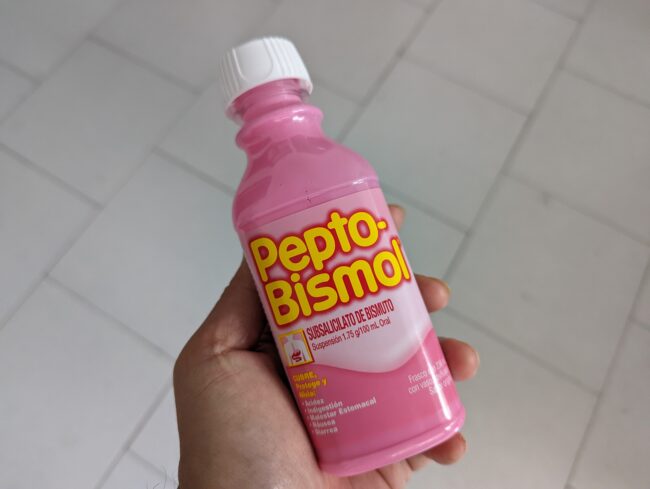If you’ve ever navigated the maze of over-the-counter (OTC) medications, you’re likely familiar with two major players: ibuprofen and Pepto-Bismol. Both drugs are household names for good reason—they tackle common ailments like pain, inflammation, and stomach upset. But what happens when you need both? In this comprehensive guide, we’ll address when you can safely take Pepto-Bismol after taking ibuprofen. So, stick around to protect yourself from potential drug interactions and side effects, all while getting the relief you need.
Ibuprofen: A Brief Overview
Ibuprofen is a non-steroidal anti-inflammatory drug (NSAID), commonly known by brand names such as Advil or Motrin. It’s your go-to medication for reducing pain and inflammation. However, its mechanism of action isn’t entirely benign. Ibuprofen works by inhibiting the enzymes that produce protective gastric mucus, leaving the lining of your stomach more susceptible to irritation and ulceration.

The Gut-Soothing Qualities of Pepto-Bismol
On the other side of the spectrum is Pepto-Bismol, the ever-popular pink liquid for an upset stomach, heartburn, and diarrhea. Its active ingredient, bismuth subsalicylate, serves as an anti-inflammatory agent. This can reduce irritation in the gastrointestinal tract and help manage symptoms like diarrhea and stomach upset.
Can You Take Pepto-Bismol After Ibuprofen?
While there aren’t established interactions between ibuprofen and Pepto-Bismol, that doesn’t mean the combination is entirely risk-free. It’s vital to consult your healthcare provider before combining these two medications. Experts generally recommend spacing out the consumption of these drugs by at least two hours. This minimizes the chance of any pharmacological interactions or cumulative irritations to your stomach lining.
Additionally, you should be cautious if you’re already taking medications that can make you drowsy, as Pepto-Bismol may add to that effect.
The Importance of Dosage and Timing
Dosage and timing are pivotal factors in the efficacy and safety of these medications. If you’ve been taking ibuprofen and find your stomach is sensitive to it, consider switching to Tylenol (acetaminophen) for pain relief. It’s generally gentler on your stomach and is a worthy alternative if you’re dealing with gastritis symptoms.
Medications to Avoid When Taking Pepto-Bismol
Now, before you go mixing Pepto-Bismol with other medications, let’s talk precautions. Other pain relievers like ibuprofen or aspirin should not be taken with Pepto-Bismol unless you’ve consulted your healthcare provider. The risk of adverse reactions multiplies when you bring other medications like angiotensin-converting enzymes (ACE) inhibitors or blood thinners like warfarin into the mix. Anti-seizure medications such as valproic acid are also on the caution list.
Final Thoughts
When it comes to medications, safety is the foremost concern. It’s always best to consult with your healthcare provider when combining drugs, especially when it involves popular OTC options like ibuprofen and Pepto-Bismol. The key takeaway is to understand each medication, know their potential interactions, and be vigilant with dosage and timing.

Editorial Staff
Our writers, editors, content managers, and SEO specialist. We all take part in crafting amazing articles. We spend hours ensuring that each article is based on facts, researched, and thorough. You'll never want to click the back button to look for more answers other than here!
